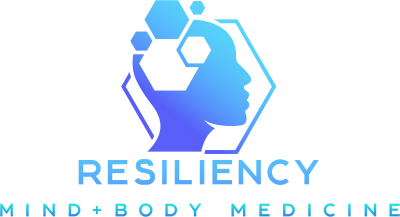Depression is a mental health condition that affects millions of individuals worldwide. Seeking treatment is crucial to understand the signs and symptoms of depression and to learn about effective treatment options. Implementing effective strategies to prevent relapse after a depressive episode can also significantly contribute to long-term recovery and promote overall well-being.
Recognizing the Signs and Symptoms of Depression
Depression manifests differently in each individual, but there are common signs and symptoms to look out for. A specific cluster of these symptoms usually have to persist most days for more than two weeks. These may include:
- Persistent Sadness: A persistent feeling of sadness, emptiness, or hopelessness that persists for most of the day, nearly every day.
- Loss of Interest: Diminished interest or pleasure in activities once enjoyed, including hobbies, socializing, or pursuing personal goals.
- Fatigue and Lack of Energy: Feeling tired, sluggish, and lacking energy even after adequate rest.
- Changes in Appetite and Weight: Significant changes in appetite, leading to either weight loss or weight gain.
- Sleep Disturbances: Insomnia (difficulty falling asleep or staying asleep) or hypersomnia (excessive sleepiness).
- Difficulty Concentrating: Trouble focusing, making decisions, or experiencing cognitive difficulties.
- Feelings of Guilt or Worthlessness: Persistent feelings of guilt, self-blame, or worthlessness that are disproportionate to the situation.
- Physical Symptoms: Unexplained physical ailments such as headaches, stomachaches, or back pain may accompany depression.
- Suicidal Thinking: Negative or intrusive thoughts that life is not worth living, that you would be better off dying, or even making plans to end your life.
Preventing Relapse: Insights from Literature and Data
- Medication: Medications are often most helpful for those with moderate to severe symptoms, and an experienced psychiatrist can discuss options if this treatment might be helpful. Sticking to prescribed medication regimens is crucial for preventing relapse. Studies have shown that individuals who consistently take their prescribed antidepressant medications have a lower risk of relapse. Most antidepressant medication courses last between 6 months to 12 months.
- Psychotherapy: Engaging in psychotherapy, such as cognitive-behavioral therapy (CBT) or interpersonal therapy (IPT), has been proven effective in reducing the risk of relapse. Therapy helps individuals develop coping strategies, identify triggers, and build resilience.
- Lifestyle Modifications: Incorporating healthy lifestyle habits, such as regular exercise, a healthy diet, sufficient sleep, and stress management techniques, can significantly contribute to preventing relapse. Research suggests that exercise, in particular, can have antidepressant effects and reduce the risk of recurrence.
- Social Support: Cultivating a strong support system of family, friends, or support groups can provide emotional assistance during challenging times. Engaging in meaningful social interactions helps combat feelings of isolation and provides a sense of belonging.
- Self-Care Practices: Prioritizing self-care activities that promote relaxation and well-being is crucial in preventing relapse. This may include practicing mindfulness, engaging in hobbies, setting interpersonal boundaries, and engaging in activities that bring joy and fulfillment.
- Early Intervention: Recognizing early warning signs of depression is key to prompt intervention and can help prevent episodes from worsening. Regularly monitoring your emotional well-being, maintaining open communication with your healthcare provider, and seeking professional help at the first signs of depression relapse can significantly reduce the severity and duration of depressive episodes.
Conclusion
Experiencing depression and preventing relapse in the future requires ongoing self-awareness, proactive measures, and support. By recognizing the signs and symptoms of depression, individuals can take the necessary steps to prevent relapse and promote long-term recovery. Through medication adherence, psychotherapy, lifestyle modifications, social support, self-care practices, and early intervention, the risk of recurrence can be significantly reduced. Remember, seeking help and implementing preventive strategies are empowering choices that can lead to a brighter future filled with hope and well-being. The team at Resiliency Mind+Body Medicine focus on all of these aspects of your total wellness. We not only address active depressive symptoms, but we help our patients build resilience and empower them to be active participants in their recovery and relapse prevention treatment planning.

